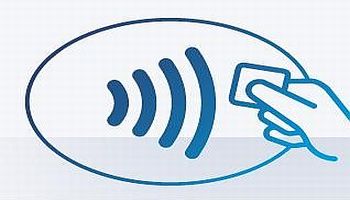

Tech giant HP is building NFC technology into its next generation of webOS devices, allowing consumers to make purchases wirelessly using their phones, according to reports.
Two people familiar with the company’s plans reportedly told Bloomberg that the first NFC-enabled tablets and smartphones from HP may be available by the end of 2011.
NFC (near-field communications) technology is a set of short-range wireless technologies that can beam and receive information at a distance of up to 4 inches. It is used in payment systems such as London Transport’s Oyster card, as well as ‘mobile wallet’ solutions.
Deutsche Telekom, which operates T-Mobile in the UK, said the push towards NFC is an attempt to fight back against the power of Apple and Google, which have dipped into smartphone users’ pockets with their app stores.
Meanwhile, device manufacturers such as Google, Apple, Research In Motion and Nokia are all busy building NFC into their future smartphone handsets. A recent report by Juniper Research predicted that global NFC mobile contactless payment transactions would reach nearly $50 billion (£30.5bn) worldwide by 2014.
“Based on our analysis and interviews with key industry players our view is that the next 18 months will see launches in up to 20 countries,” said senior analyst David Snow.
Meanwhile, market research firm YouGov is calling on retailers to raise awareness of NFC mobile payments, after a survey found that 70 percent of British consumers haven’t heard of mobile wallets and 91 percent haven’t heard of NFC technology.
While nearly a quarter of respondents said they were interested in paying for items using their mobile phone, 36 percent said they didn’t know if their phone handset was capable of making cashless payments, and 69 percent of those that have contactless payment cards never use the technology.
“Many consumers are attracted by the idea of paying for items via their mobile phone. But it is down to mobile operators and handset manufacturers to work with retailers to educate consumers about the real advantages of paying for items in this way,” said YouGov consultant Russell Feldman, who led the research.
“We believe once people have seen it in practice – and are reassured about the measures in place to protect their financial and personal security – they will be quick to adopt it and the industry will reap the rewards.”
OpenAI chief operating officer Brad Lightcap to oversee international expansion as company consolidates lead in…
Chinese researchers publish details on device that could wreak havoc on undersea communications cables in…
Former Intel chief Gelsinger expands role at Gloo, becoming executive chairman and head of technology…
MEPs add to Commission pressure for second EU Chips Act amidst industry calls for renewed…
Smartphone maker Xiaomi reportedly raises about $5.5bn in Hong Kong share sale as it invests…
BYD's Qin L EV sedan starts at about half the price of Tesla's Model 3,…